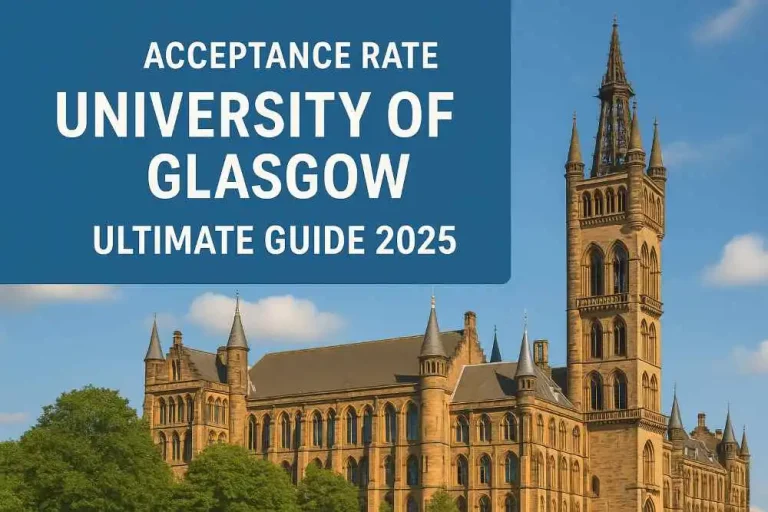When researching top institutions in the UK, the University of Manchester’s acceptance rate often emerges as a crucial metric for prospective students. In the heart of one of Britain’s most vibrant cities stands an institution that has shaped minds and changed the world for over two centuries. To truly understand the University of Manchester’s acceptance rate, we need to look beyond just the numbers and explore what makes this institution unique.
The Numbers That Tell a Story
Currently, the University of Manchester’s acceptance rate stands at approximately 56%, making it an accessible yet selective institution. While analyzing the University of Manchester’s acceptance rate statistics, it’s important to note that this percentage represents a careful balance between maintaining prestigious standards and providing opportunities to passionate learners worldwide. When comparing the University of Manchester’s acceptance rate to other Russell Group universities, you’ll find it reflects the institution’s commitment to both excellence and accessibility.
Picture yourself among the thousands of hopeful students who, each year, contribute to the University of Manchester’s acceptance rate statistics by submitting their applications. This journey from applicant to student is more than just a number – it’s about becoming part of a legacy of innovation and discovery. Understanding the University of Manchester acceptance rate trends over recent years can help you better prepare your application.
The Manchester Experience: More Than Just Education
While the University of Manchester’s acceptance rate might initially draw your attention, the true value of studying here extends far beyond admissions statistics. The historical University of Manchester’s acceptance rate data shows us that successful applicants join a diverse community where ideas flow as freely as conversation. Here, you’ll find yourself sharing coffee with a future engineer from Shanghai, debating philosophy with a literature student from Lagos, or collaborating on a project with a biochemist from Berlin.
By looking deeper into what influences the University of Manchester’s acceptance rate, we discover that the university values more than just academic achievements. The city itself becomes your extended classroom. Manchester’s transformation from industrial powerhouse to cultural hub mirrors the journey many students take here – one of growth, reinvention, and endless possibility.
Crafting Your Success Story
To join this diverse community, you’ll need more than just good grades (though those certainly help). The university looks for students who bring something unique to its community. Think of your application as your first contribution to the Manchester story.
Academic Excellence: The Foundation
When examining the factors that influence the University of Manchester’s acceptance rate, academic performance stands out as crucial. Your academic records should demonstrate not just achievement, but potential. While specific requirements vary by program, competitive applications typically show:
Strong performance in A-levels, International Baccalaureate, or equivalent qualifications A genuine engagement with your chosen field, often reflected in your subject choices and projects For international students, English language proficiency (typically IELTS 6.5 or equivalent) that enables you to fully participate in the academic discourse.
Beyond the Classroom
Manchester’s history of innovation wasn’t built solely on test scores, and neither should your application be. The university values students who:
Show initiative through independent projects or research. Demonstrate leadership in school or community activities. Bring diverse perspectives and experiences to the classroom. Exhibit curiosity and passion that extends beyond formal education.
Making Your Application Stand Out
Think of your application as a story – your story. Like any good narrative, it should have a clear theme (your passion for your chosen field), supporting evidence (your achievements and experiences), and a compelling vision of the future (your potential contribution to the university community).
Start crafting your Personal Statement early, allowing time for reflection and revision. Share specific examples of how your experiences have shaped your academic interests. Perhaps it was a chemistry experiment gone wrong that taught you more than all your successful ones, or a community project that opened your eyes to the real-world applications of economic theory.
Remember to:
- Research your program thoroughly, understanding its unique features and requirements
- Connect your experiences to your chosen field of study
- Show self-awareness about your strengths and areas for growth
- Demonstrate understanding of why Manchester is the right place for your next chapter
Life Beyond Acceptance
If you’re fortunate enough to join the Manchester community, you’ll find yourself part of an institution that values growth, challenges assumptions, and encourages innovation. The university’s commitment to pushing boundaries extends from its research laboratories to its teaching methods, creating an environment where learning happens not just through lectures, but through discovery, debate, and sometimes even disagreement.
Looking Forward
As you consider your application, remember that the University of Manchester’s acceptance rate of 56% represents not a barrier but a bridge – one that thousands of students like you cross successfully each year. With careful preparation, genuine passion, and a well-crafted application that tells your unique story, you could join them in writing the next chapter of Manchester’s illustrious history.
Whether you’re drawn by the university’s research excellence, its diverse community, or the vibrant city it calls home, remember that every Manchester student started exactly where you are now – with a dream and the courage to pursue it. Your journey to becoming part of this remarkable institution begins with a single step: believing that you, too, have something valuable to contribute to the Manchester story.
FAQs
-
What is the current acceptance rate at the University of Manchester?
The University of Manchester has an acceptance rate of approximately 59%, indicating a moderately competitive admission process.
-
Does the University of Manchester’s acceptance rate vary by program?
Yes, acceptance rates differ among programs. For instance, medical science courses such as MBBS, BDS, and Nursing have an acceptance rate of 12.3%, reflecting higher competition.
-
How does the University of Manchester’s acceptance rate compare for international students?
The acceptance rate for international students is similar to the overall rate; however, specific programs may have varying levels of competitiveness.
-
What factors influence the University of Manchester’s acceptance rate?
Factors include the number of applications received, the popularity of specific programs, and the university’s capacity to accommodate students.
-
Has the University of Manchester’s acceptance rate changed over recent years?
Yes, acceptance rates have decreased since 2019/2020 due to increased competition and a rising number of applications.
-
Which programs have the highest acceptance rates at the University of Manchester?
Programs with higher acceptance rates are typically less oversubscribed; however, specific data on each program’s acceptance rate may vary annually.
-
Do all faculties within the University of Manchester have the same acceptance rate?
No, acceptance rates vary across different faculties and programs, depending on factors like application volume and course demand.
-
What is the acceptance rate for postgraduate programs at the University of Manchester?
The acceptance rate for taught master’s degree courses is around 35%, though this can vary by program and year.
-
How does the University of Manchester’s acceptance rate compare to other UK universities?
With an acceptance rate of approximately 59%, the University of Manchester is considered moderately selective compared to other UK institutions.
-
What can applicants do to improve their chances of admission, given the University of Manchester’s acceptance rate?
Applicants should focus on achieving strong academic results, crafting a compelling personal statement, and obtaining solid references to enhance their admission prospects.








